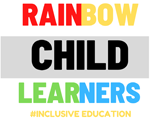“I was born Autistic, yet I was admitted to regular school, I have always attended regular schools,” she says, “When I contacted a HR consultant to recruit volunteers for a CSR project, we were conducting in our business community.” I would not have become a lawyer if it weren’t for my parents and the chance, I had to attend a regular school.
I’m writing today about what “Inclusive Education Means,” inspired by her personal experience. According to a UN report on the right to education of persons with disabilities, inclusive education is based on the principle that all children learn together whenever possible, regardless of differences.
This is also in line with the Lagos state Ministry of Education’s Inclusive Education Policy, which was released on May 26, 2015.
Inclusion education aims to combat discriminatory attitudes and create welcoming communities by taking into account the diversity of students. According to the report, educational systems shouldn’t look at people with disabilities as problems that need to be fixed in this way; instead, they ought to approach individual differences as opportunities to enrich learning for everyone and respond positively to pupil diversity.
Special schools are in many cases in light of the conviction that people with handicaps are uneducable or are a weight on the standard school system. The practice of isolating students with disabilities from the rest of the class has the potential to exacerbate the social exclusion that disabled people typically face, furthering discrimination.
Degener, a German professor of law and disability studies who is also a member of the UN Committee on the Rights of Persons with Disabilities, asserts that “special education is less qualified than mainstream education.” Human rights are seriously violated when someone is left out of the education system.
According to UNICEF, inclusive education can ultimately improve learning outcomes for all children, not just those with disabilities. As it fosters an inclusive social culture and encourages equal participation in society, it fosters tolerance and facilitates social cohesion.
Why we advocate for Inclusive education, and we believe it should be encouraged for several reasons. Here are some of the key reasons:
1. It promotes equity and social justice: Inclusive education promotes equity and social justice by ensuring that all students have access to the same opportunities for learning and development, regardless of their background or ability. This helps to level the playing field and reduce the educational disparities that exist in our society.
2. It benefits all students: Inclusive education benefits all students, not just those with disabilities or special needs. By learning together in an inclusive environment, students are exposed to a wider range of perspectives and experiences, which can broaden their understanding and enhance their learning.
3. It prepares students for the real world: Inclusive education prepares students for the real world by exposing them to diverse perspectives and experiences. This helps to develop their social and emotional intelligence, which is increasingly important in a globalized and interconnected world.
4. It fosters a sense of community: Inclusive education fosters a sense of community by creating a learning environment where all students are valued and included. This can help to build stronger relationships and connections between students, teachers, and families.
5. It aligns with human rights principles: Inclusive education aligns with human rights principles by promoting the right to education for all, regardless of their background or ability. It is a fundamental human right to have access to quality education, and inclusive education helps to ensure that this right is realized for all.
In general, inclusive education should be encouraged because it is in line with human rights principles, benefits all students, prepares them for the real world, and promotes equity and social justice.
At Rainbow Child Learners, one of our social responsibilities is to support initiatives that promote inclusive education. Our team is actively interacting with stakeholders in the education districts in which we operate in order to make a contribution to the improvement of the accessibility and quality of inclusive education, particularly for disadvantaged or marginalized groups.
We encourage other community stakeholders and businesses to show their support for inclusive education and make a difference in the lives of students and their families.
We are aware that advocating for inclusive education is a process that takes time and may not bring about change overnight. We can, however, make a significant impact on our community with perseverance, dedication, and a robust support system.
